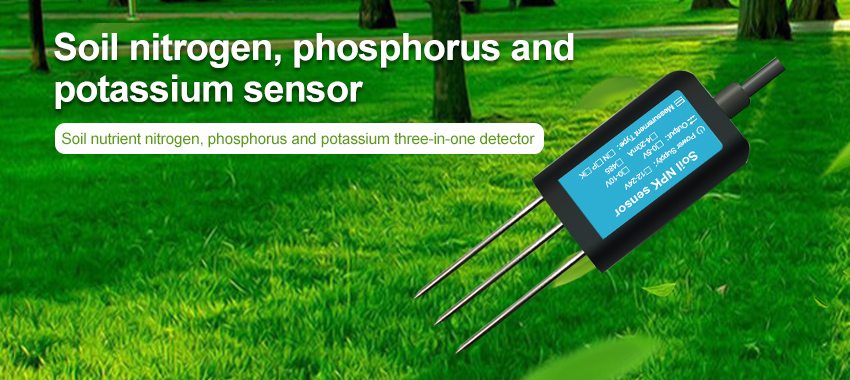Soil health is the foundation of sustainable agriculture and plays a crucial role in ensuring food security and environmental sustainability. Understanding the intricate dynamics of soil is essential for optimizing crop productivity, conserving resources, and mitigating the impacts of climate change. In recent years, soil sensor technology has emerged as a powerful tool for unlocking the secrets of soil health. This article explores the significance of soil sensor technology, its potential applications, and how it can revolutionize agricultural practices for a more sustainable future.

The Importance of Soil Health:
Soil is a complex ecosystem that harbors a vast array of organisms and influences plant growth, nutrient availability, water retention, and carbon sequestration. Healthy soils are rich in organic matter, have balanced nutrient levels, and possess good physical structure, allowing roots to penetrate easily. Enhancing soil health is essential for improving agricultural productivity, reducing erosion, and minimizing the need for synthetic fertilizers and pesticides. Soil sensor technology offers insights into soil properties, helping farmers make informed decisions to optimize soil health.
Precision farming, also known as precision agriculture, is a data-driven approach to farming that utilizes advanced technologies to optimize crop production and resource management. One essential component of precision farming is real-time soil sensor data, which provides farmers with valuable insights into soil conditions. This article explores the concept of precision farming, the significance of real-time soil sensor data, and how it empowers farmers to make informed decisions for efficient and sustainable agriculture.
The Concept of Precision Farming:
Precision farming involves the use of technology and data analysis to customize farming practices, allowing farmers to tailor their actions to maximize productivity and minimize resource waste. It encompasses various technologies such as GPS, remote sensing, drones, and soil sensors. By leveraging these tools, precision farming aims to optimize input usage, reduce environmental impact, and increase profitability.
Real-time Soil Sensor Data:
Real-time soil sensor data plays a crucial role in precision farming by providing farmers with accurate and up-to-date information about soil conditions. Soil sensors are devices that measure various parameters such as moisture content, temperature, nutrient levels, pH, and salinity in the soil. This data helps farmers understand the soil’s health and make informed decisions regarding irrigation, fertilization, and other agronomic practices.
Optimizing Irrigation Practices:
One of the primary applications of real-time soil sensor data is in optimizing irrigation practices. Water is a precious resource in agriculture, and inefficient irrigation can lead to water wastage, increased costs, and negative environmental impacts. Soil sensors help farmers determine the moisture content at different depths and locations in the field. By monitoring soil moisture levels in real-time, farmers can precisely schedule irrigation based on the actual needs of the crops. This reduces water waste, prevents water stress, and enhances the overall efficiency of irrigation systems.
Improving Nutrient Management:
Efficient nutrient management is essential for crop growth and minimizing environmental pollution. Real-time soil sensor data aids in optimizing nutrient management practices. Soil sensors measure nutrient levels in the soil, allowing farmers to adjust fertilizer applications accordingly. By identifying nutrient deficiencies or excesses, farmers can apply fertilizers in precise amounts and at the right time, ensuring that crops receive adequate nutrition. This targeted approach minimizes fertilizer waste, reduces costs, and protects water bodies from nutrient runoff.

Adjusting pH Levels:
Soil pH directly affects nutrient availability and plant health. Real-time soil sensor data enables farmers to monitor soil pH levels continually. By identifying areas with high or low pH, farmers can take corrective measures such as applying lime or sulfur to adjust the pH accordingly. This ensures that the soil is within the optimal pH range for specific crops, promoting better nutrient uptake and improved overall plant health.
Managing Salinity Levels:
Salinity, caused by excessive salt accumulation, can severely affect crop growth and yields. Real-time soil sensor data allows farmers to monitor salinity levels in the soil throughout the growing season. By identifying areas with high salinity, farmers can adjust irrigation practices to prevent further salt buildup. This proactive approach helps maintain optimal soil conditions for crop growth, maximizing yields and minimizing losses due to salinity stress.
Site-Specific Management:
Every field has unique soil characteristics and variability. Real-time soil sensor data facilitates site-speci
